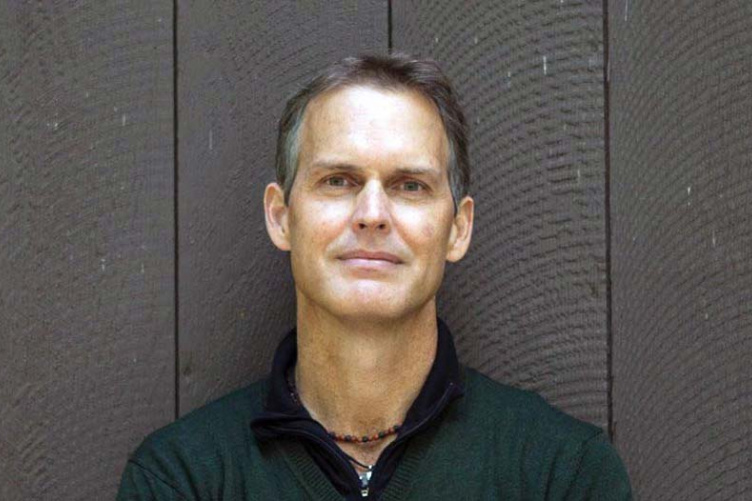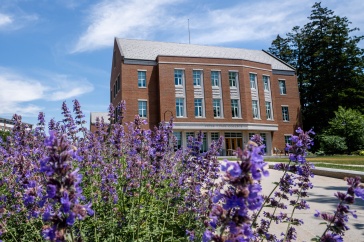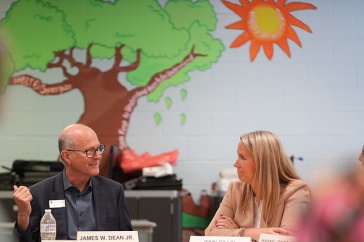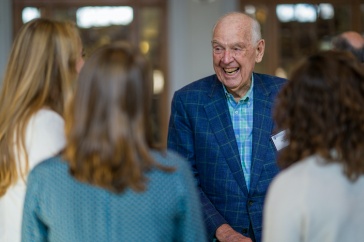
A former television producer, John Marshall ’87 is a father, video storyteller, writer, cartoonist, carpenter, guitarist and songwriter—all skills that have proved useful in his new global venture.
Marshall has started a nonprofit, New Orphanage (working toward “a new orphan age”) that seeks to identify and spotlight projects that directly benefit the world’s orphans, so that potential donors can know their money will be well-used. (Paperwork is being filed to incorporate the group as a 501(c)3; donations go directly to the projects featured on neworphanage.org.)
He has focused so far on the Good Shepherd Agricultural Mission in Banbasa, India, which cares for 75 children, runs a 60-acre farm and two years ago started a school that now serves nearly 450 students from the area.
A campaign to expand the school raised $114,000 in 60 days on the crowd-funding site Indiegogo. Previous campaigns had allowed the orphanage to build desks, install a new water system, power its generator and begin developing an independent solar energy system.
On a self-designed tour promoting his first book, Wide-Open World. Marshall spoke with Jane Harrigan during an April stop in Tucson, Ariz.:
You spent much of last year living at the Good Shepherd Agricultural Mission in India. How is the person who counted 217 hugs from orphans in a single day different from the person who graduated from UNH in 1987?
Back then I was very concerned with myself, with making money, getting famous. But age softens you; it humbles you and opens you up. I’ll be 50 in December. Now, first and foremost, I want to do something meaningful and useful.
In television I won a bunch of awards, and I used to be so proud of them. When I won my first one, I couldn’t stop looking at it. But now I find working with orphaned kids so much more rewarding. In fact, I’m bringing one of the Emmy statues to the orphanage next time I go, and leaving it there for the kids. They’ll like that it’s so shiny.
When you finished your first screenplay, did you really drive into the Hollywood Hills at 2 a.m. to bang on the door of a guy who had said two months earlier that he’d read it?
(Laughing) Yeah, in my early twenties I truly believed that anything was possible. That’s youth; it’s hubris. It’s easy to say I acted like a jerk. But that time of my life was wonderful because I would do a crazy, stupid thing like bang on someone’s door in the middle of the night to try to get my career started. Now I’m glad no one opened the door — or called the police.
Of course I should’ve waited till morning. But the person I was then — he couldn’t wait because he felt so driven, like “This is my moment.” I can’t muster that kind of feeling today, but I love it that I once felt that way. When I look back on that person that I was, I’m inspired by the braveness.
Setting out with your family to volunteer around the world, without many plans in place, sounds pretty brave.
My wife and I wanted to take a trip around the world when our son was born, and then suddenly he was 17 and our daughter was 14 and we still hadn’t done it. That’s the thing about a trip around the world: It’s never the right time. You never have enough money. And no one ever encourages you to go.
If you want to travel, the trick is to commit. Don’t just dream of doing it or desire doing it. DECIDE to do it. Once you decide, the rest is just details. At least that’s how it worked for us.
Details like ... ?
Initially I’d been given a leave of absence from my job, but then I was told by my company I’d have to quit. So I said OK, I quit. The plane tickets are not refundable, and we’re going. As the saying goes, we jumped off the cliff and figured we’d learn to fly on the way down.
Then there was the way we rented our house. We had no realtor to screen applicants, just said, “Here’s our key” and left every single thing we owned in the house. That’s how motivated we were to go: We turned our house over to a total stranger — which is not something I recommend.
The whole trip was a wake-up call. In regular life before then, I could get ready, get out the door and drive to work without remembering any of it. I was sleepwalking. But on the trip, everything was new; we were all wide awake and so alive. Even simple things were exciting. You don’t have to travel around the world to feel that, but it helps. When monkeys are biting you, you’re wide awake.
Those scenes in the book of the monkeys biting in Costa Rica are so scary!
We’d been warned by the wildlife sanctuary that spider monkeys tend not to like large white males, which is not a bad description of me. Every time the monkeys bite, they bite three times, and I got bitten on three different days. So nine bites — on my leg and my foot, my elbow and my head, even my spine.
I was freaked out, especially the first time, running back to our room and bleeding into the sink. After the third set of bites, I was done. On our last day there, my wife and kids were outside playing with the monkeys and hugging them goodbye, and I was just huddled inside, a basket case.
Even so, it was an amazing experience to live so close to the monkeys. It wasn’t all biting. It was definitely more fun than it was terrifying. Most things are scarier before you actually do them. Once you do something bold, it emboldens you to do another thing that’s bold.
Trying to help the world’s orphans is your new definition of boldness?
Helping to make change in the life of an orphaned child is the best work I’ve ever done, and I’ve done some pretty fun things. UNICEF says that of the 153 million orphan children in the world today, 22 million, the single largest number, are in India. It would be awesome to help them all. But it’s paralyzing to think about that; it just shuts my mind off.
I’m starting with this one orphanage because I know and trust them. Then I’d like to find other trustworthy people and programs that are working and help tell their stories, help grow the work they’re doing. If it grows to be thousands of children, that would be amazing, but if it stays small, that’s amazing too. Just so long as real lives are touched and money is not wasted.
It’s a great honor for me to be a part of these children’s lives. I just love them, I do. If you asked the kids, “Who gives more in this exchange, you or Uncle John?” they’d say, “Oh, Uncle John gives us much more; we don’t really do anything.”
But if you ask me, I’ll say the total opposite: Whatever I give is nothing compared to what they give me. So it’s the perfect exchange — everyone feels like they’re giving nothing, and everyone feels like they’re getting everything. ~



















































